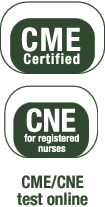concerning adjuvant systemic therapy?
Project results and discussion
BACKGROUND
Clinical decision-making regarding adjuvant systemic therapy for solid tumors presents a substantial patient education challenge to medical oncologists. The treatment strategy is subtle and challenging to explain to patients; the potential benefits involve complex numeracy; and the potential risks of therapy may be substantial.
Despite these potential obstacles, clinicians are regularly called upon to counsel patients about this treatment option, and approximately one third of office visits for US-based medical oncologists relate to adjuvant systemic therapy of breast, colorectal and lung cancer (Love 2007).
Patterns of Care surveys conducted by our CME group (Love 2006) and other similar surveys (Ravdin 1998; Bremnes 1995; Jansen 2001) indicate a discrepancy in the way oncologists approach this treatment strategy across tumor types. For example, oncologists are more likely to recommend chemotherapy to a woman with triple-negative breast cancer than to a patient at similar risk with colorectal cancer (Figure 1).

Many factors contribute to this dichotomy, including a less well-established research database supporting adjuvant therapy in colorectal cancer. However, in breast cancer, a series of patient surveys over the last 20 years has also had an important impact on the clinical practice of adjuvant therapy.
For example, a sentinel 1986 Australian study by Coates and Simes (Coates 1992; Simes 2001) of 104 women treated for breast cancer with adjuvant CMF for six months demonstrated that approximately half would receive the same therapy again for a one percent improvement in five-year overall survival.
Because no similar study had been conducted for patients with colorectal cancer, our CME group launched several preliminary needs assessment activities to better understand the perspectives of people in this clinical situation. These included a 2004 interactive town meeting with approximately 100 colorectal cancer survivors and guests and a 2005 national survey of 150 people with colorectal cancer who reviewed an audio interview with clinical investigator John L Marshall, MD.
We then initiated the current study to validate and expand on previous findings by exploring the experiences of people with colorectal cancer who had recently received adjuvant chemotherapy. The project had several major objectives (Figure 2).

| Table of Contents | Top of Page |

